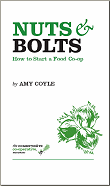Ed Mayo, Secretary General of Co-operatives UK asks what advantages might the Localism Bill present for co-operative members?
Last year, shop and pub closures were at record levels. Over 1,000 rural shops and 2,400 pubs (rural and urban) were predicted to close by the end of the year. Now, the prediction is for a further 2,700 pubs to shut down this year, which means one pub now closes every three hours, with big consequences for the lives of local communities.
I was in Salford some months ago to visit Britain’s first urban co-operative pub, the Star. There had been four other pubs locally but all had closed, when the community were given three weeks notice by the pub chain that the Star was going to close and be put up for auction. Local people, like Jim Simpson clubbed together to raise the money to buy the Star for community use.
Behind the bar, Sue, who had worked there for thirty years, got her old job back and the doors reopened.
The Localism Bill in theory is designed to help exactly this kind of co-operative action. It is a signature piece of legislation for a government that has set out it's stall on the case for the big society.
Traditional business groups have fought the proposals, arguing that to be registered as a lifeline, community services would limit their freedom on commercial resale. But that is the point - that to benefit commercially from a local community ought to create reciprocal responsibilities to give that community some consideration when you are walking away. We wait to see whether what emerges in law is post-bureaucratic or, through the sheer complexity of the process, too convoluted to be of widespread use.
There is more too that councils can do voluntarily to echo the localism bill at a local level. Charities for example get 80% discount on rates - why not open that up to community-based co-operatives and social enterprises as well?
My hope is for legislative flexibility and widespread take-up. The pub closure rate has increased over recent years, from 316 net closures in 2006. The UK currently has around one pub for every 1,100 people, but pubs stand or fall by
being local.
Research I have put together for Co-operatives UK shows that consumers are less concerned with what drinks are on offer than that the ‘local’ is in fact local. As the profitability of pubs has become harder to sustain, the risk is that
the UK will reach a tipping point of closures, in both rural and urban settings.
With at least 5,000 recorded pub names, from the Round of Carrots to the Strawberry Duck, the Jolly Taxpayer to the Mad Dog, we are also losing cultural diversity – what is distinctive to local areas.
The odds are stacked against localism and so it is clear what we need to do. It is time to change those odds.
Ed Mayo is Secretary General of Co-operatives UK, the independent, nonparty trade association for co-operative and mutual enterprise.



